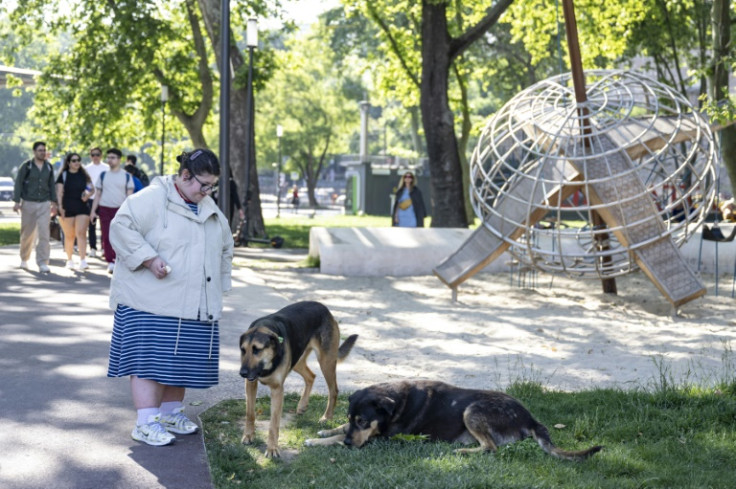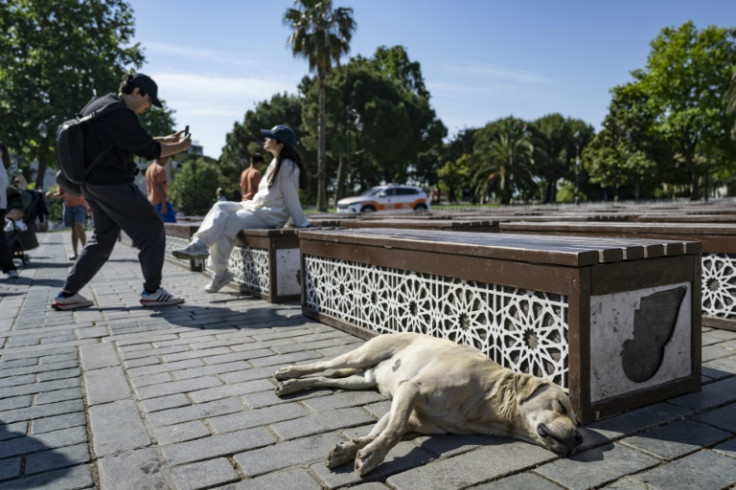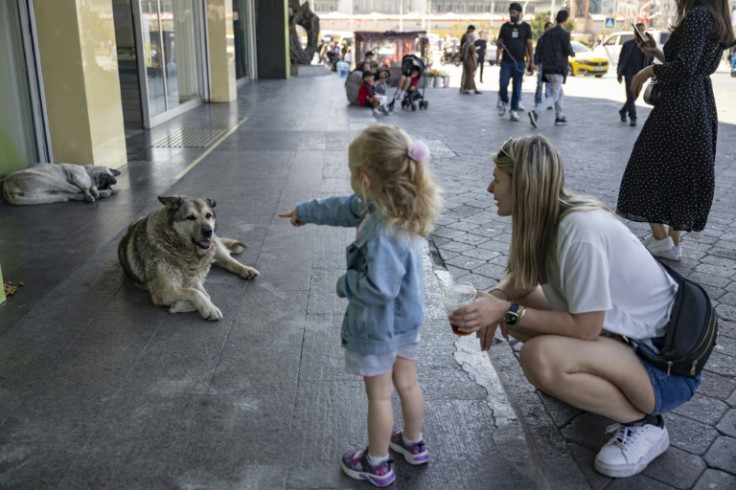
The clip shows people rushing to help an older woman knocked over by one of the many stray dogs on Istanbul's streets. It is the kind of canine run-in that plays continuously on Turkey's social media.
The anger these clips spark is part of a growing furore pitting Turks who have lost patience with aggressive strays against people sympathetic to the homeless dogs' plight.
Fed up with attacks by stray hounds, campaigners have convinced the government to draw up legislation aimed at curbing the number of strays.
"We want streets without dogs!" is one popular slogan.
But the plan has provoked an outcry from animal rights activists because of the measures it proposes.
The bill, which is expected to be put to parliament soon, calls for the homeless animals to be captured en masse before being sterilised and spayed.
Finally, if the stray is not adopted within 30 days, it will be put down.
In the face of a stray dog population the government says has reached four million in Turkey, President Recep Tayyip Erdogan argued Wednesday the nation needed "to move on to more radical measures."
"We have a problem with stray dogs that does not exist in any developed country," he noted, citing an increase in rabies cases and dog-related traffic incidents.
Turkey is classified as a "high risk" country for rabies by the World Health Organization, and the government says dogs caused 3,544 road accidents over the past five years, killing 55 and injuring more than 5,000.
But critics argue the bill will lead to a massacre under the guise of putting dogs down, with a protest in Istanbul against the plan planned for Sunday.
Animal rights activists say the measures bring back memories of an Ottoman-era tragedy.
In 1910, an estimated 60,000 strays captured in Istanbul were sent to the deserted Hayirsizada rock in the middle of Turkey's Sea of Marmara.
With nothing else to eat, the dogs tore each other to pieces.
Haydar Ozkan, vice-president of the country's Animal Rights Federation (HAYKONFED), argued in the Gazete Duvar media outlet that the government should learn from the tragedy and instead prioritise effective sterilisation and animal shelters.
"There are no shelters in 1,100 of Turkey's 1,394 municipalities," Ozkan said, adding that the few that do exist do not have the means to sterilise dogs themselves.
A law in force since 2021 requires the country's municipalities to build shelters, with the deadline for their completion varying according to the size of the community.
But the resources allocated for their construction are too meagre, activists argue.
In the face of the growing controversy, agriculture minister Ibrahim Yumakli conceded that "it is possible to control the proliferation of stray dogs by sterilising 70 percent of them every year."
But he pointed out that on average only 260,000 strays were sterilised a year over the last five years -- far too few to make an impact.
Mindful of Turkey's reputation abroad, Erdogan said those numbers showed that "past methods have not brought a solution."
"This issue must be resolved as quickly as possible to make the streets safe for everyone, especially children," the Turkish leader said.
Turkey's veterinary association is opposed to any plans for putting strays down, complaining that it was not consulted.
"Killing is not a solution. The dog population could be reduced in a short time with effective sterilisation," it said in a statement.
In the meantime, people worried about the number of strays trade horror stories, like that of a young girl left with severe bite marks after being attacked by a dog in Ankara.
A tourist with the handle @Franck1936 also claimed on social media platform X that he gave up on cycling across Turkey because of dogs attacking his wheels.
"Cycling makes them crazy," he said.










